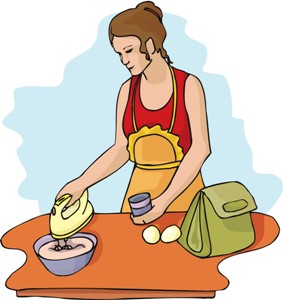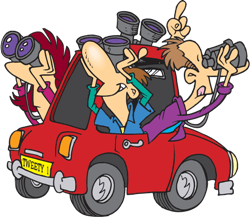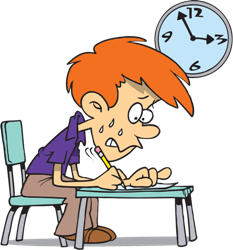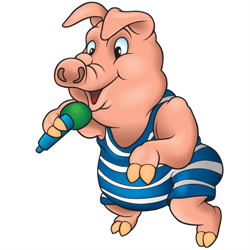Quotation Marks Worksheets
We must use quotation marks
in different
situations in English, such as quoting what someone says, so get some
practice in with these quotation marks worksheets. We'll review the
uses and rules for writing sentences with quotation marks with
illustrated examples, followed by exercises for you to practice!
Click Here for Step-by-Step Rules, Stories and Exercises to Practice All English Tenses
We use quotation marks when we want to quote the exact words spoken or written by another person. We also use them for titles or words that we are using in a special way in a sentence.
Below, there are illustrated examples to review the uses of quotation marks, as well as the rules for how to write them in a sentence.
Uses of quotation marks
This is a brief review. For full explanations and examples, check out
the quotation
marks article.Here are some of the ways we can use quotation marks:
1. To quote the exact words someone else spoke or wrote
For example:
- "There's a spider in your hair!" she screamed.
- According to Wikipedia, London is "the capital city of
England and of the United Kingdom."
- "If you're going to the store," she said, "please buy some more eggs."

2. To give titles of books, poems, articles, chapters, movies, etc.
For example:
- My very favorite book is "Jane Eyre" by Charlotte Bronte.
- Please read "The History of Pottery" in your textbooks.
- Do you know the song "All of Me?"

3. To show that a word is being used in a special way in the sentence
Maybe we want to say that something is thought or supposed to be a certain way, but we don't agree.
For example:
- The "reception" was just sandwiches in the parking lot!
(In this sentence, I mean that in my opinion, that isn't a real reception.)
- The "specialist" I spoke to didn't even know the author's
name.
(I mean that the person I spoke to said he was a specialist, but I don't think so.)

We can also use quotes around a word a phrase to say that we are using it only as a word, like in an example.
- We use the word "chauffeur" to talk about a driver in
English, but this is originally a French word!
- If you look up the noun "present" in a dictionary, you will see that it has different meanings.

These are the situations in which we use quotation marks. Now, let's review the rules.
Rules for using quotation marks
For a complete explanation with illustrated examples, check out the interrupted quotations article.Here are the main rules:
1. Always use quotation marks at the beginning and end of the word or words you are quoting
There should be no spaces between the quotation marks and the words you are quoting.
For example:
Incorrect: "I am a big fan of yours, said the girl.
Correct: "I am a big fan of yours," said the girl.
Incorrect: She read The Da Vinci Code" in four days!
Correct: She read "The Da Vinci Code" in four days!
Incorrect: I want to see " Monsters University ."
Correct: I want to see "Monsters University."

2. Separate the quote from the speaker tag with commas
The speaker tag are the words that indicate who said or wrote what you are quoting.
We usually put the speaker tag at the end of the sentence, but it can come in the middle or, sometimes, at the beginning of the sentence.
Remember that the comma before the speaker tag stays inside the quotation marks, but a comma after the speaker tag says outside the quotation marks.
For example:
Incorrect: "It's a good idea to travel together" he said.
Correct: "It's a good idea to travel together," he said.
Incorrect: "It's a good idea", he said ",to travel together."
Correct: "It's a good idea," he said, "to travel together."
Incorrect: He said "It's a good idea to travel together."
Correct: He said, "It's a good idea to travel together.

3. The final punctuation of the sentence goes inside the quotation marks
If there is no speaker tag at the end of a quoted sentence, a period, explanation mark or question mark goes inside the quotes.
Even if the speaker tag comes in the middle, question marks and exclamation marks are placed inside the quotation marks.
For example:
Incorrect: "Are you going to the party tonight," Jenny asked?
Correct: "Are you going to the party tonight?" Jenny asked.
Incorrect: The teacher said, "Please begin your tests".
Correct: The teacher said, "Please begin your tests."

That's all there is to it! Now, let's get some practice.
Exercise A: Using quotation marks
Choose the best answer to describe each picture.1.

a.) "Their" cute little puppy looks more like a monster!
b.) Their cute little puppy "looks" more like a monster!
c.) Their cute little puppy looks more like a "monster!"
d.) Their "cute little puppy" looks more like a monster!
2.

a.) "Why did the chicken cross the road?" asked the comedian.
b.) "Why did the chicken cross the road," asked the comedian?
c.) " Why did the chicken cross the road? " asked the comedian.
d.) "Why did the chicken cross the road? asked the comedian.
3.

a.) All together, the children yelled "Trick or treat!"
b.) All together, the children yelled Trick or treat!
c.) All together, the children yelled, "Trick or treat!"
d.) All together, the children yelled, "Trick or treat"!
4.

a.) The sign said, "stop".
b.) The sign said, "stop."
c.) The sign said "stop."
d.) The sign said ",stop."
5.

a.) He said it would be amazing, but the "surprise" was just his hat!
b.) He said it "would" be amazing, but the surprise was just his hat!
c.) He said it would be amazing, but the "surprise was just" his hat!
d.) He said it would be amazing, but the surprise was just his "hat!"
Exercise B: Quotation marks in sentences
Rewrite each sentence, placing the quotation marks in the correct place.1. I love the song I Will Always Love You.
________________________________________________________________
________________________________________________________________.
2. Listen to me, said the tour guide.
________________________________________________________________
________________________________________________________________.
3. If you want to help, she said, slice those onions.
________________________________________________________________
________________________________________________________________.
4. The policeman said, Don't worry, it's safe to walk here.
________________________________________________________________
________________________________________________________________.
5. The word examine has a Latin root.
________________________________________________________________
________________________________________________________________.
Exercise C: Punctuation with quotation marks
Find and correct the mistake in each sentence.1.

"If you're going to be a bad loser," said John, "it's better not to play"!
________________________________________________________________
________________________________________________________________.
2.

"Just carry those boxes and I'll get the door" said Sheila.
________________________________________________________________
________________________________________________________________.
3.

"Look at that great big ship," said Michael!
________________________________________________________________
________________________________________________________________.
4.

Timmy looked at me and said "I'm not feeling very well."
________________________________________________________________
________________________________________________________________.
5.

" I do love getting presents," John said.
________________________________________________________________
________________________________________________________________.
Answer Key
Exercise A:1. d.) Their "cute little puppy" looks more like a monster!
2. a.) "Why did the chicken cross the road?" asked the comedian.
3. c.) All together, the children yelled, "Trick or treat!"
4. b.) The sign said, "stop."
5. a.) He said it would be amazing, but the "surprise" was just his hat!
Exercise B:
1. I love the song "I Will Always Love You."
2. "Listen to me," said the tour guide.
3. "If you want to help," she said, "slice those onions."
4. The policeman said, "Don't worry, it's safe to walk here."
5. The word "examine" has a Latin root.
Exercise C:
1. "If you're going to be a bad loser," said John, "it's better not to play!"
2. "Just carry those boxes and I'll get the door," said Sheila.
3. "Look at that great big ship!" said Michael.
4. Timmy looked at me and said, "I'm not feeling very well."
5. "I do love getting presents," John said.
Get Updates, Special Offers, and English Resources
Download your FREE GIFT (the first two chapters of
English Short Stories Book and Workbook)
as soon as you join!

By submitting your email, you consent to receiving updates and newsletters from us and to the sharing of your personal data with third parties for the purposes of sending you communications. We will not spam you. You can unsubscribe at any time. For more information, please see our privacy policy.





